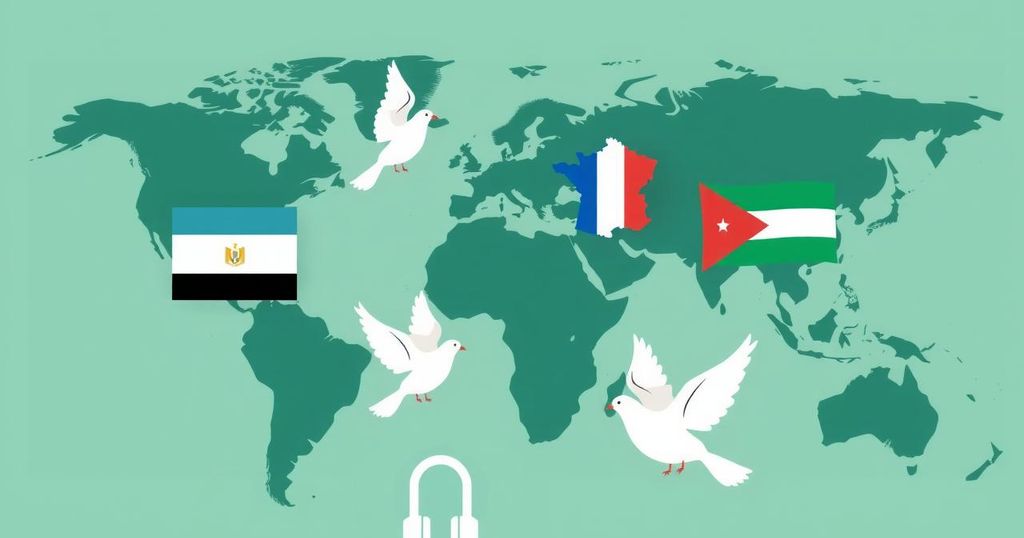A Year After the Earthquake: Struggles and Uncertainty for Noto Peninsula Residents
A year after a devastating earthquake on the Noto Peninsula, residents like Sueko Naka are still grappling with loss and uncertainty. With nearly 470 lives lost, ongoing aftershocks, and a slow pace of recovery, the community faces significant emotional and practical challenges as they navigate life in temporary accommodations and contend with the prospect of rebuilding amidst profound tragedy.
In the aftermath of a devastating earthquake on January 1, 2024, 83-year-old Sueko Naka finds herself living with her family in a temporary unit on the Noto Peninsula instead of the ancestral home she cherished. The quake, which registered 7.5 in magnitude, resulted in the loss of nearly 470 lives, prompting mass evacuations and leaving many survivors, particularly the elderly, feeling abandoned in makeshift shelters. A year later, Ms. Naka grapples with trauma and uncertainty, echoing the sentiments of many in her community as they confront a slow recovery amid ongoing fears of aftershocks and further disasters.
The earthquake and subsequent aftershocks wreaked havoc on the Noto Peninsula, leading to substantial casualties and extensive property damage. The disaster was exacerbated by severe flooding in September, which resulted in additional loss of life. Those who had hoped to rebuild are faced with significant challenges, including the destruction of over 100,000 structures and the crippling of vital infrastructure, further compromising the region’s ability to recover. Wajima, one of the hardest-hit areas, has seen a substantial decline in its population—a worrying trend indicative of an even deeper societal crisis as residents contemplate their future in the wake of such calamity.
Residents like Ms. Naka and her family represent the struggle against despair. Despite having received support post-earthquake, the intense challenges posed by subsequent disasters have forced many to reconsider their plans for returning to their homes. With significant portions of affected areas still resembling construction sites, recovery appears daunting. The prevailing sentiment is one of uncertainty. Many wonder if it is permanent or if they will have to endure further disasters in a region vulnerable to natural calamities.
“Every time I think about what happened, I can only cry,” reflects Ms. Naka, highlighting the emotional toll of her experience. Her daughter, Miyuki Kijima, now cares for the elderly couple and echoes this reluctance to return home. “Why only Wajima, why again?” she asks, questioning the likelihood of successful reconstruction amidst a cycle of destruction. With the communal spirit strained by displacement, family ties have been tested, and the once-thriving community faces becoming increasingly depopulated.
As recovery efforts continue with limited progress, local officials are striving to inspire hope and rebuild, albeit amid a backdrop of fear and loss. These sentiments resonate with the many families in Wajima, solidifying their resolve to reconstruct their lives, although morbid apprehension lingers in their hearts.
The article discusses the impact of a major earthquake on the Noto Peninsula region of Japan, which occurred on January 1, 2024. It highlights how this natural disaster became the deadliest earthquake in over a decade for Japan, resulting in significant loss of life and long-term consequences for local residents. The devastation prompted widespread evacuations and posed substantial challenges to rebuilding efforts, compounded by subsequent disasters such as severe flooding. The article also delves into the emotional and physical struggles faced by survivors, particularly the elderly, as they navigate life in temporary accommodations and cope with the aftermath of profound loss and uncertainty.
The Noto Peninsula’s residents face a long and challenging road ahead following the catastrophic earthquake of January 1, 2024. As ongoing aftershocks and extreme weather complicate recovery efforts, many individuals grapple with profound emotional distress and the practical challenges of rebuilding their lives. The community’s demographic decline and displacement may lead to a potentially grim future, further emphasizing the need for effective support and resources to facilitate a comprehensive recovery.
Original Source: japantoday.com




Post Comment